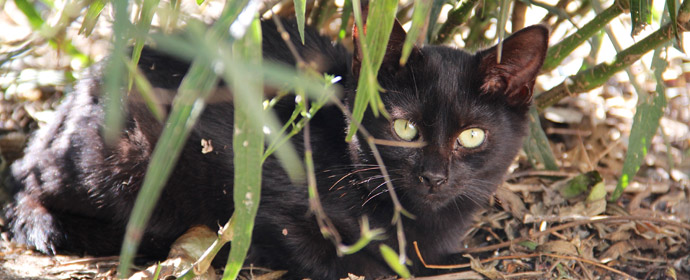Alley Cat Allies has submitted testimony in favor of Hawaii Senate Bill 998 and House Bill 220, which would allow for citizens to give part of their income tax refund to support the state’s spay and neuter fund.
Low-cost spay and neuter is critical to improving the lives of cats and kittens and is an invaluable community resource. Below is our letter to Hawaii legislators urging them to pass this important legislation.
—-
Feb. 9, 2023
The Honorable Cedric Asuega Gates, Chair
House Agriculture & Food Systems Committee
Hawaii State Capitol
415 S. Beretania St.
Honolulu, HI 96813
Dear Chair Gates and Members:
On behalf of Alley Cat Allies and our thousands of supporters in Hawaii, I am writing to urge your support of HB220, “Relating to the Spaying and Neutering of Animals,” with clarifications to promote humane policy decisions for community cats who live outdoors in the state.
If enacted into law, HB 220 would establish a spay and neuter special fund, allow funds from an income tax check-off to be deposited into the fund, and establish an advisory committee to help establish eligibility criteria and procedures for disbursements from the special fund, prioritizing funding to organizations that specialize in Trap-Neuter-Release (AKA Trap-Neuter-Return or TNR). HB 220 was introduced by Representative Scott Nishimoto and is currently assigned to the House Agriculture & Food Systems Committee.
Alley Cat Allies is the leading global advocacy organization dedicated to protecting and improving the lives of all cats. We have promoted sound and compassionate programs for cats since our founding in 1990. We work with lawmakers, shelters, and the public to change attitudes, launch new programs, and advance lifesaving laws and policies that serve the best interests of cats and the communities where they live.
Preventing new births of domestic cats and dogs is proven to be the effective and humane way to manage animal populations. Therefore, sterilization is the linchpin that makes possible the bigger goals of public health, animal protection, and effective population management. The availability of a spaying and neutering fund will save lives and reduce the intake, housing and killing of animals, thereby saving Hawaiian taxpayers millions of dollars.
Low-cost spay and neuter programs are very effective at increasing the sterilization rate among pet cats in lower-income households. These programs also benefit community cats, also called stray or feral cats, as part of TNR, whereby unowned, free-roaming cats are trapped, sterilized, vaccinated, eartipped, and returned to their outdoor homes to live and thrive.
HB 220 will significantly reduce one of the greatest barriers low-income owners face to neutering their pet: cost. A peer-reviewed scientific study published in the Journal of the American Veterinary Medical Association found that while most pet cats are already neutered, the neuter rate is significantly lower for pet cats living in households earning $35,000 or less annually. The lower-income owners who were interviewed primarily cited high cost as the reason for not neutering their cats. Providing low-cost or free spay and neuter services benefits both cats and shelters as research has shown that spaying and neutering reduces the risk that adopted animals will be returned or relinquished to shelters.
There are also a substantial number of stray and community cats who benefit from spay and neuter programs. Sterilizing these cats prevents unchecked breeding, eliminates nuisance behaviors associated with mating, and improves their health.
However, because humane management of community cats who live outdoors is a specific priority of this bill, the language of the bill must be adjusted to better promote humane policy decisions in the oversight of the fund to be created. Section 2, §143 (B) should therefore be changed to add a second mention of “humanely,” to read as follows:
“All members shall have an active interest in humanely reducing pet overpopulation and humanely reducing the number of free-roaming cats in the State.“
Furthermore, because a critical component of Trap-Neuter-Return involves returning cats to their outdoor homes to live healthy lives outdoors, it is important to use the term accurately. Section 2, §143 (b), should also be changed to omit the word “release” and to instead read as follows:
“…provided that, in establishing the eligibility criteria, the advisory committee shall prioritize funding to organizations that specialize in trap-neuter-return practices.“
Increased accessibility of spay and neuter services is a win for citizens, a win for animal shelters, and a win for cats. For these reasons, we urge you to support HB 220.
Sincerely,
Calley Gerber
Alley Cat Allies


